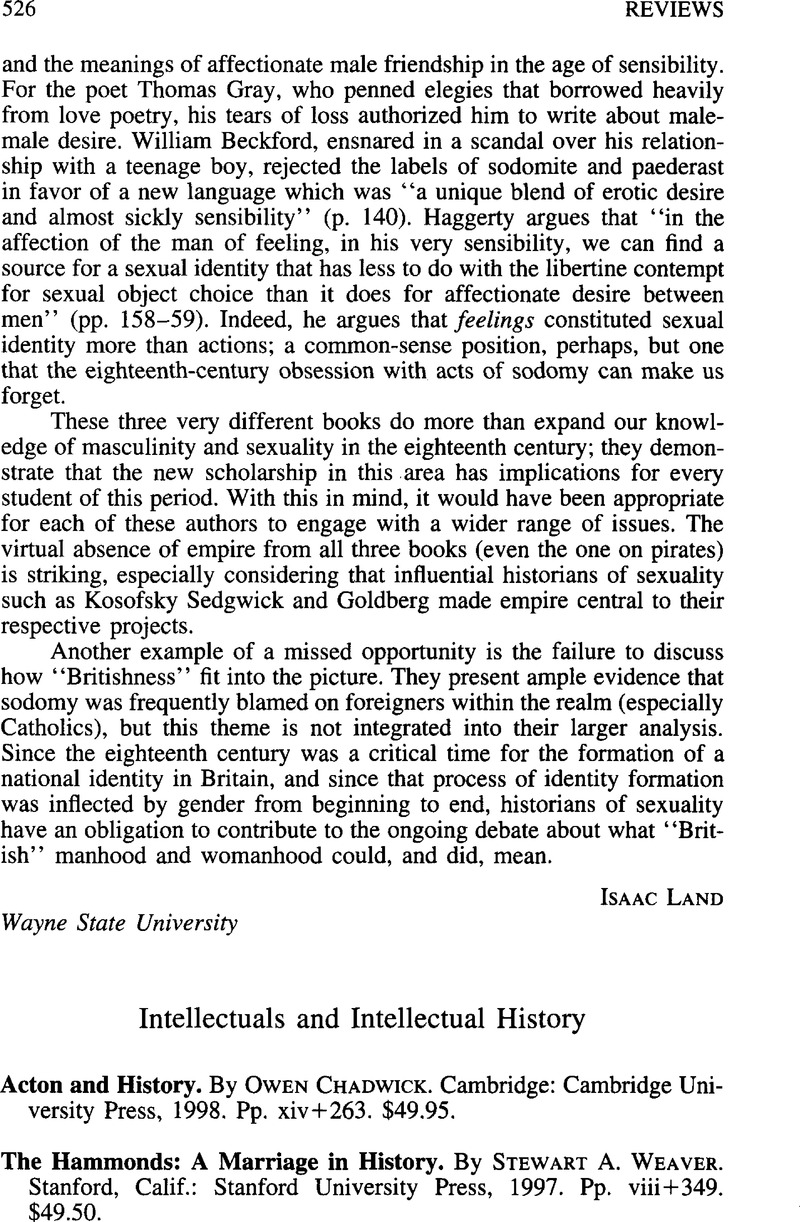No CrossRef data available.
Article contents
Intellectuals and Intellectual History - Acton and History. By Owen Chadwick. Cambridge: Cambridge University Press, 1998. Pp. xiv + 263. $49.95. - The Hammonds: A Marriage in History. By Stewart A. Weaver. Stanford, Calif.: Stanford University Press, 1997. Pp. viii + 349. $49.50. - The Cambridge Apostles, 1820–1914: Liberalism, Imagination, and Friendship in British Intellectual and Professional Life. By W. C. Lubenow. Cambridge: Cambridge University Press, 1998. Pp. xvi + 458. $59.95.
Review products
Published online by Cambridge University Press: 10 January 2014
Abstract

- Type
- Reviews
- Information
- Copyright
- Copyright © North American Conference of British Studies 2000
References
1 See Hobsbawm, Eric and Ranger, Terrance, eds., The Invention of Tradition (Cambridge, 1983)Google Scholar.
2 Conversation with Elton, who took considerable pleasure in telling this story, June 1988. The motion failed.
3 Clapham, J. H., An Economic History of Modern Britain: The Early Railway Age, 1820–1850 (Cambridge, 1926)Google Scholar. Clapham, at the opposite end of the political spectrum from the Hammonds, extolled empire and patriotism as well as the reality of melioristic social and economic progress. By the end of the 1920s, he lost his audience among clever Cambridge undergraduates who, increasingly, moved to the left. See Soffer, Reba N., Discipline and Power: The University, History, and the Making of an English Elite, 1870–1930 (Stanford, Calif., 1995), esp. pp. 152–56Google Scholar.


